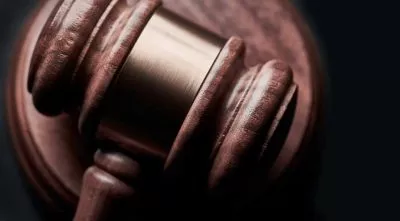
Unauthorized Use of Name or Likeness: Can I Sue if Someone Uses My Name?
This page has been peer-reviewed, fact-checked, and edited by qualified attorneys to ensure substantive accuracy and coverage.
Unauthorized use of name or likeness is an unlawful commercial use of an individual’s (or business’s) name, image, or other identifiable characteristics without their consent. This can cause damage to their reputation or goodwill, and it can also result in economic loss.
In most U.S. states, you can sue someone for using your name or likeness without your consent in an exploitative way. This commonly occurs when someone uses another person’s name in an advertisement without their permission. If you can prove that the use of your name caused you harm, such as financial loss, you may be able to recover damages.
At Minc Law, we represent individuals and businesses whose names have been used for commercial and noncommercial purposes. We have also helped clients remove over 50,000 pieces of harmful or unwanted online content that was damaging their reputations.
Minc Law provides a full range of services to help businesses of all sizes and individuals from all walks of life control their online reputation and image.Damaged reputation?
In this article, we will discuss the legal concept of “unauthorized use of name or likeness” and how it is proven. We will also discuss common damages that can be recovered for this and similar legal claims.
What is Using the Name Or Likeness of Another?
Using the name or likeness of another person without their permission can be considered an invasion of privacy. In some cases, it may also give rise to a claim of defamation.
What is the Unauthorized Use of Name or Likeness?
Unauthorized use of name or likeness is the use of someone’s name or other identifying characteristics without that person’s permission for commercial purposes. This can include using a person’s name, photo, or other personal information in an advertisement or other marketing materials. It can also include using a person’s identity to raise money or for another personal gain.
Do You Need Permission to Use Someone’s Likeness?
The law does not give individuals an absolute ownership right in their names and likenesses; however, individuals do have privacy and publicity rights which provide some protection under certain circumstances.
These laws vary from state to state. In general, the law requires that individuals must give their permission before their name or likeness can be used for a commercial purpose.
What Purposes Are Included in the Potentially Unlawful Use Of Someone’s Name Or Likeness?
The two core purposes typically included in the potentially unlawful use of someone’s name or likeness are (1) privacy, and (2) economic or other exploitative purposes. The unauthorized use of an individual’s name or likeness for commercial gain, such as in ads or product endorsements, is a clear violation of their economic rights.
Additionally, the unauthorized use of an individual’s name or likeness in a way that could be considered harmful to their reputation could be considered a violation of their right to privacy.
What Are the Legal Claims That Apply to Unauthorized Uses Of Your Name Or Likeness?
The unauthorized use of someone’s name or likeness may give rise to two different types of legal claims:
- Violation of the right of publicity, and
- Invasion of privacy.
The right of publicity is the right of a person to control and make money from their identity. This right applies to those whose identity carries with it a level of fame or celebrity, giving it higher commercial value.
The second type of claim, invasion of privacy or wrongful appropriation, may be used when a person’s name has been used without their permission.
Misappropriation claims are very similar to the right of publicity. However, a key distinction is that the right of publicity prevents the unauthorized commercial use and benefit of one’s identity.
Right of Publicity
As noted above, the right of publicity is the legal right to control the commercial use of one’s name, likeness, or other aspects of one’s identity. This right is violated when a person’s name or likeness is used to sell or advertise goods or services without their permission.
However, artwork may be considered an expression of the First Amendment and thus protected from liability for violation of publicity rights. Only commercial reproductions of artwork qualify as goods under this standard. For instance, an original painting of your loved one would not be a violation of their rights. However, reproductions of the painting on t-shirts, postcards, or other commercial goods could violate their right of publicity.
Invasion of Privacy Through Misappropriation
Invasion of privacy laws protect against harm to one’s personal space and private life.
Generally, there are four distinct categories of invasion of privacy law: (1) intrusion into seclusion (when someone intentionally intrudes into the private affairs of another); (2) public disclosure of private facts (publication of private affairs of another when the disclosure would be highly offensive to a reasonable person); (3) placing a person in false light (publishing something that may be technically truthful or opinion-based information, but in such a way that indicates there is something negative or untrue about the person); and, (4) appropriation of name or likeness (when someone publicly uses the name or likeness of another person for his or her own benefit without their consent).
For this to be considered an invasion of privacy, the person depicted must be recognizable, and the use of their name or likeness must not have been consented to.
The circumstances must also fit the following criteria:
Invasion of Privacy by Appropriation or Rights of Publicity
Invasion of privacy by appropriation is the unauthorized use of another person’s likeness for commercial purposes. This can include using someone’s photo in an advertisement without their permission or using their name or image to sell a product.
Invasion of Privacy by Intrusion Into Private Affairs
Invasion of privacy by intrusion into private affairs is the right of every person to be protected from unwarranted and offensive invasions of privacy by other individuals. This right is violated when someone discloses sensitive matters about a private person where the individual has a reasonable expectation of privacy.
For example, this right could be violated if a reporter secretly videotaped a private conversation with an employee at their place of work.
Invasion of Privacy by Trespass or Constructive Trespass
Invasion of privacy by trespass is the unauthorized entry onto another person’s property to capture an image or recording of them engaging in a personal or familial activity. This can also happen if someone uses a telephoto lens or audio-enhancing device from a distance, enabling them to obtain the same results as if they had trespassed.
This right is not violated if the image or recording is captured by insurance investigators or criminal investigators.
Invasion of Privacy by Public Disclosure of Embarrassing Private Facts
Invasion of privacy by public disclosure of embarrassing private facts is violated only when the disclosure is not of legitimate concern to the public. Artists might violate this right, for instance, if they depict a person nude. However, if the nudity or offensive conduct occurred in public, that might be construed as a matter of public concern.
Invasion of Privacy by False Light Disclosure
Invasion of privacy by false light disclosure happens when your likeness is used to suggest something false or defamatory about you.
For example, if your photo is used to illustrate an article about drug dealing (and you are not a drug dealer), it could create a false impression of your character. False light disclosure can be damaging to your reputation and may even cause emotional distress.
Elements of a Claim For Unlawful Use of a Name or Likeness
There are two main types of claims for unauthorized use of a name or likeness: misappropriation and violation of the right of publicity. Only human beings have rights of publicity and privacy, so only individuals can sue for unlawful use of name or likeness unless an individual has transferred their rights to an organization.
It is worth noting that entities may still be able to sue; however, it would be under claims of trademark infringement or unfair competition.
What Are the Elements of a Claim For Unlawful Use of Name or Likeness?
The right to control the use of one’s name, image, and likeness is protected under state law, and there are some differences among the states. Yet, there are three general elements required to sue for unlawful use of name and likeness:
Use of a Protected Attribute
The plaintiff must show that the defendant used distinguishable aspects of their identity, such as their name, signature, photo, image, likeness, or voice.
The Use Was For an Exploitative Purpose
The defendant must have used the plaintiff’s protected attribute in an exploitative manner – either for commercial or personal gain. If someone’s name or likeness is used in news reports or for expressive purposes, it will not be considered exploitative as long as there is a legitimate public interest in the subject matter.
The Plaintiff Did Not Give Consent
Finally, the plaintiff must establish that they did not consent to the use of their name or likeness. Note that minors cannot consent to the use of their name or likeness on their own behalf.
Can a Company Sue You For Having the Same Name?
Before choosing a business name, you should consider whether it is already in use by another company. If you choose the same name as another business, you risk being forced to change your name or pay damages to the other company. It can also make it difficult to register trademarks.
This standard is a little different if you share a name with an out-of-state business. Before you settle on a name, you should ask yourself:
- If the other business is in the same industry as you,
- If they are in the same geographic market, and
- Who started using the name or trademark first?
Your answers to these questions can help you determine if you will cause consumer confusion, something which could mean you are running afoul of trademark law.
When You Can Use a Similar or Exact Name
There are some scenarios when you may be able to use the same name as another business. without causing customer confusion.
For instance, if you operate in a different industry or geographic market from the other business, you may be able to use the same name without legal trouble.
When You Cannot Use a Similar or Exact Name
If you operate in the same industry as the other business, it is probably best not to use the same name. The same is true if the other business is a major national brand that is not restricted to one geographic location.
Likewise, if the other business already registered trademarks under their name, you should consider using another name.
Common Defenses to Using the Name Or Likeness of Another
While the defenses to these legal claims will vary depending on the jurisdiction, some of the most common defenses to a claim for using the name or likeness of another include consent, the statute of limitations, incidental advertising use, and several First Amendment protections.
Why is Consent a Defense to a Legal Claim For Misappropriation of a Name or Likeness?
To successfully bring a claim for misappropriation of name or likeness, the plaintiff must prove that the defendant used their name or likeness without consent. If the plaintiff gave oral or written consent to the defendant to use their name or likeness, the defendant would not be liable for the publication.
However, it is important to note that the publication cannot exceed the scope of the consent that was given – if it does, the defendant may be liable. Additionally, even if consent is given, the plaintiff always retains the right to revoke their consent before publication takes place.
When Can The Plaintiff Revoke Their Consent For the Use Of A Name or Likeness?
A plaintiff can revoke their consent at any time before the use of their name or likeness takes place. Once the use occurs, the plaintiff can no longer revoke consent. The reason for this is that the defendants have already relied on the plaintiff’s consent and acted in good faith.
If the plaintiff were to revoke their consent after the fact, it would be unfair to the defendants.
When is The Maximum Amount Of Time The Plaintiff Can Wait Before Bringing A Lawsuit Forward?
The second defense for a misappropriation of name or likeness claim is that the statute of limitations has expired. The statute of limitations (SOL) is a time-limiting mechanism and the maximum amount of time a plaintiff can wait before bringing a lawsuit.
In these cases, it is common for the SOL to be anywhere from one to three years, and it generally starts running from the date of first publication.
What Other Limitations Exist to the Unauthorized Use of Likeness?
Those who use one’s name or likeness for news or commentary will generally not be held liable for misappropriation as long as they are reporting on matters of public interest, as this is protected under the First Amendment. Courts have typically taken a very broad view of what is considered “in the public interest.”
For instance, the unauthorized biography of a celebrity and a TV news report that a doctor was sexually assaulting his patients were deemed public interest.
The First Amendment protects not only freedom of speech but also the right to create and share creative works. This includes the right to use someone’s name or likeness in a book, film, or work of art. Acts of parody may also be considered creative works.
The incidental use doctrine is a legal principle that protects the use of someone’s name or likeness in connection with the truthful advertising of other works protected under the First Amendment. This doctrine is designed to strike a balance between the right of individuals to control the use of their name and likeness and the rights of others to engage in truthful speech about their work.
While the incidental use doctrine provides some protection for uses of name and likeness, it is not absolute. For example, the doctrine does not protect uses that are intended to mislead or deceive people.
Damages For Using the Name or Likeness of Another
The unauthorized use of another person’s name or likeness can give rise to a claim for damages. The law recognizes the value of an individual’s name and likeness, and the unauthorized use of these things can cause harm to the individual’s reputation or economic interests.
Damages may be awarded for any injury that results from the unauthorized use, including emotional distress and economic losses.
What Are Common Damages or Harm to the Plaintiff Because of the Publication Unlawfully Using a Name or Likeness?
The unauthorized use of one’s name or likeness can cause a variety of harm. The most common damages include harm to the plaintiff’s reputation or community status, mental distress, and special damages such as a loss of earnings. In some cases, unauthorized use may also lead to physical harm.
The most common harm caused by the unauthorized use of one’s name or likeness is economic harm. This includes damages such as loss of earnings, loss of business opportunities, and loss of competitive advantage. In some cases, the unauthorized use may also cause non-economic harm, such as emotional distress or harm to one’s reputation.
How Can Unlawful Use of a Name or Likeness Cause Mental Distress?
Deepfake technology has made it easier than ever to unlawfully use another person’s name or likeness. This can cause mental distress for the person who is being impersonated, as their image could be used in a way that is damaging to their reputation. Deepfakes are often indistinguishable from actual images or videos of a person, and they can go viral very quickly.
Celebrities and public figures are particularly vulnerable to deepfakes because their images are often worth a great deal of money. See, e.g., BuzzFeedVideo, You Won’t Believe What Obama Says in This Video!, YouTube (Apr. 17, 2018). A single false image or video can destroy one’s image overnight, causing one to lose sponsorships, jobs, and valuable public support.
How Can the Plaintiff Recover Special Damages Related to the Unlawful Use of a Name Or Likeness?
A plaintiff can recover special damages related to the unlawful use of a name or likeness in a variety of ways. These can include damages for loss of reputation, physical injury, pecuniary loss, and loss of consortium by the spouse.
In addition, a plaintiff may obtain injunctive relief to stop the defendant from continuing to violate the plaintiff’s right to publicity.
Finally, depending on state law, a plaintiff might be entitled to punitive damages, statutory damages, and attorneys’ fees.
★★★★★
“Excellent work by Minc Law. Very respectful of my needs and 100% successful in resolving my issue. Highly recommend Minc.”
Lee
Nov 3, 2022
The laws surrounding the unauthorized use of someone’s name or likeness are complex and may vary by state. If you believe someone has unlawfully used your name or likeness, contact the experienced internet defamation attorneys at Minc Law to evaluate your case. Call today at (216) 373-7706, speak with a Chat representative, or fill out our online contact form.




